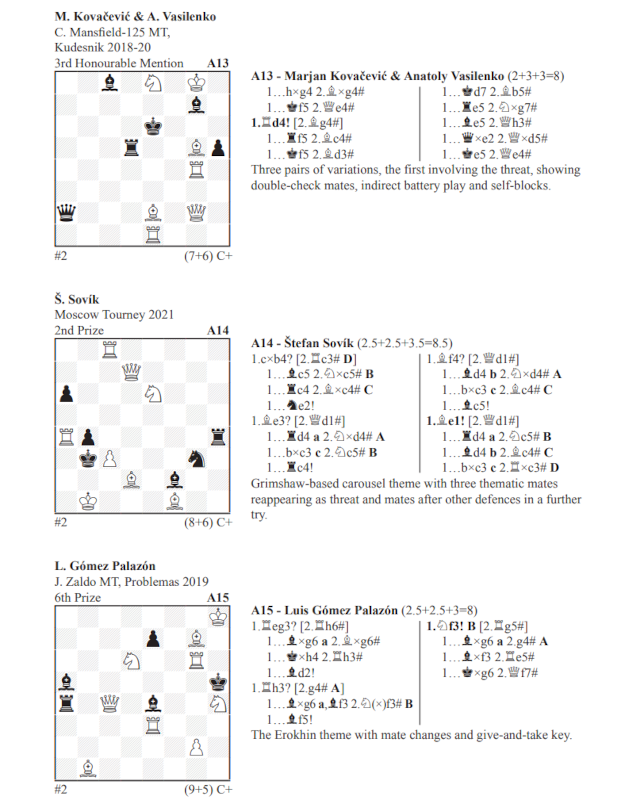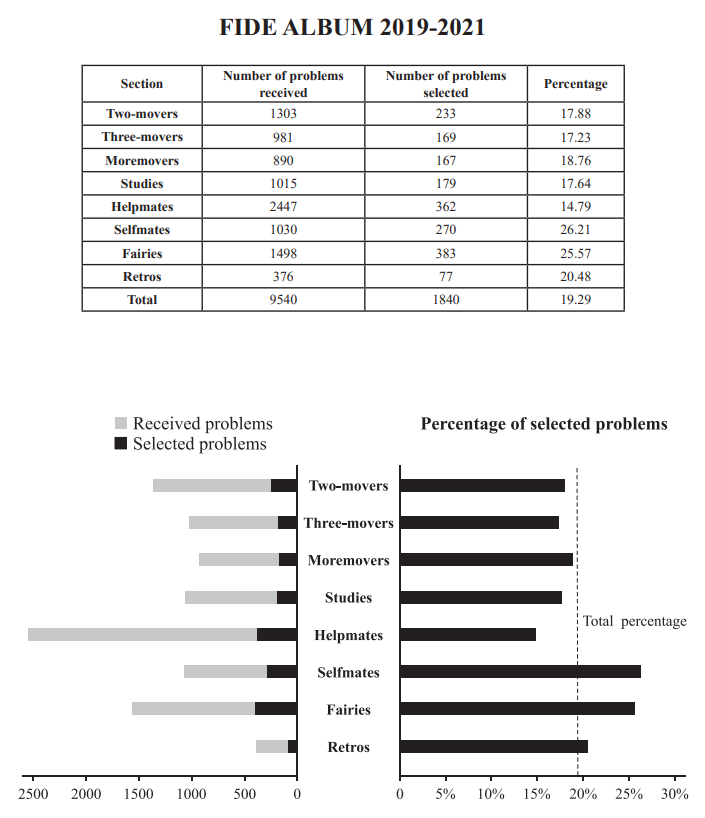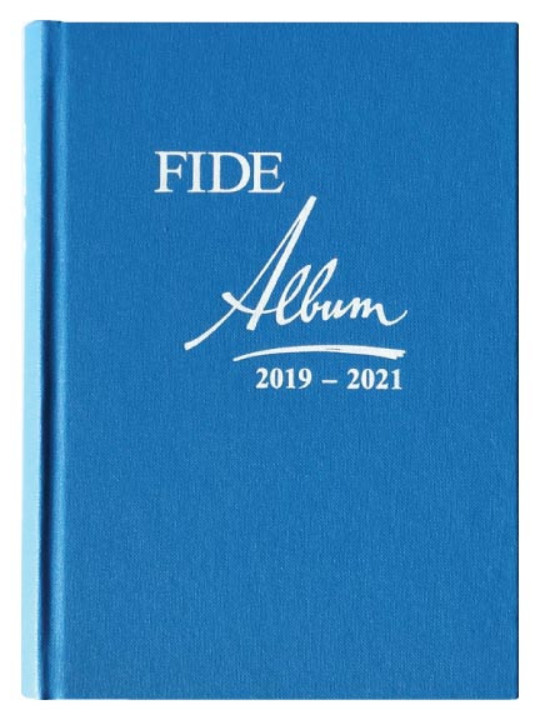The International Chess Federation not only deals with the rules of competitive chess and the organisation of tournaments. FIDE has set itself many other tasks, and one of its departments is dedicated to the field of chess composition. Here too there are competitions and tournaments, but the evaluation criteria are different.
In 1956, the “Permanent Commission of the FIDE for Chess Compositions” was founded. Since 2010 this FIDE department has been called the “World Federation for Chess Composition.” One of its founding fathers was Nenad Petrovic (1907–1989), one of the most important composers of chess problems. He was a “Grandmaster of Chess Composition” and in 1947 won the World Chess Solving Championship (WCSC). In 1962, he succeeded Gyula Neukomm as President of the Commission for Chess Composition.
Nenad Petrovic also had the idea of publishing the best compositions in a book, the FIDE Album. The first volume appeared in 1961 and included the finest compositions from the years 1956–1958. Since then, the retrospective scope has been extended. In the 1970s, three volumes were published retrospectively with the finest problems from the years 1914 to 1945. The gap from 1945 to 1955 was closed with an album in 1964.
The FIDE Albums were at first not published regularly, as in the 1980s they appeared every four years, and at present they are published every three years. A few weeks ago, the FIDE Album with the finest problems from the years 2019–2021 was released.
The books are heavyweights, not only in content. The current album, the 26th in the series, offers on 832 pages no fewer than 1,840 diagrams with problems across different sections – it weighs 1.6 kilograms.

The editors received a much larger number of submissions, almost 10,000. A jury of experts then selected what they considered the finest for each section.
The sections are two-movers, three-movers, more-movers, (endgame) studies, helpmates, selfmates, fairies (with additional pieces not used in normal chess) and retros, in which retrograde analysis must reveal how a particular position was reached.

Problem chess and studies are a fascinating field, which “ordinary” chess enthusiasts seldom encounter. But it is worth entering this unfamiliar territory, where not only composers display their artistic skills, but the pieces themselves perform elegant manoeuvres in special situations that are not typically seen. In other words: during chess training, it is worth exercising a few “muscles” that often remain underused.
Of course, in the field of problems there are many established experts and specialists. But most chess lovers are not among them. That is why the editors have helpfully added an index at the end of the book explaining some of the technical terms.

FIDE Album 2019–2021
The FIDE Album 2019–2021 costs €56.00 and can be ordered from the shop page at fidealbum.com or by email from Peter Gvozdjak.
World Federation for Chess Composition…
Smyslov cultivated a clear positional style and even in sharp tactical positions often relied more on his intuition than on concrete calculation of variations. Let our authors introduce you into the world of Vasily Smyslov.
